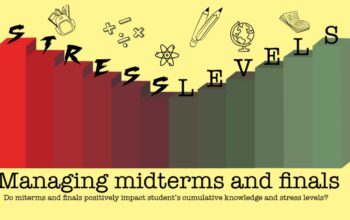
Audrey Piehl
Arts & Entertainment Editor
I believe I was in the sixth grade when I heard my first “that’s what she said” joke. At the time it didn’t make much sense, a cluster of innocent words made hilarious by a simple phrase. By seventh grade I was fully aware of the “top secret” meaning, and by eighth grade it became (shamefully) as much a part of my vernacular as “like” or “Facebook.” Though the joke has somewhat faded from funniness over the years, at least for most high schoolers, the real purpose of it lingers everywhere students go.
“That’s what she said,” to put it bluntly, is about sex. And that’s why it is so widely used and hilarious when delivered at the perfect time. Believe it or not, the first use of “that’s what she said” was in 1929 by none other than Alfred Hitchcock, when he said “as the girl said to the soldier.” It remained in pop-culture through the 20th century, reappearing in Wayne’s World, before becoming immensely popular by Steve Carell’s notoriously perverted Michael Scott on The Office.
So what is the point of tracking a relatively dumb phrase through media history? Well, “that’s what she said” is one of the best examples of sexual repression, particularly of teenagers, as broad-casted by mass media. I don’t have to tell my fellow alumni that they’re sexually repressed, whether by parents, religion, or what have you. What students may not be aware of is how entertainment mediums, from movies, music, or books, are taking that truth and providing remedies for it on a virtually constant basis.
This became obvious to me fairly recently, when I heard about a novel being discreetly passed from one housewife to another. “Fifty Shades of Grey” by E.L. James is an erotica novel selling out of bookstores around the country, the typical “supermarket romance novel” taken to an, ahem, extreme level.
Replace a few characters with vampires and erase some choice vocabulary words and you’re left with “Breaking Dawn” by Stephanie Meyer. Complete with some steamy scenes with ridiculous romances, Meyer’s best-selling novel sold 3.7 million copies, most of which to giggly teenagers. The popularity carried into the theater as well, part one of the film rendition earning 139.5 mil in it’s first weekend. The vampire saga is so popular because it appeases a desire for emotional and sexual attention, two factors often brutally restricted in an adolescents world.
Furthermore, if you take a gander to the current most downloaded songs on iTunes, you’ll find the songs “We Are Young,” “Glad You Came” and “Wild Ones” all clutching top spots. In fact the most popular song on iTunes of all time, as of February 2010, was “I Gotta Feelin’”, basically the Black Eyed Peas version of Fun.’s anthem. In their own ways all these songs are appealing to youth by chanting about how we’re young and we can do what we want, like have sex when we feel like it. It’s a privilege most of us want, feel like we deserve, but don’t get. Period.
So the next time someone’s putting Twilight on the Netflix cue, think about why they’re doing it. It’s not for Kristen Stewart’s acting, I can assure you of that. And when The Wanted’s provocative lyrics, “And I decided you look well on me, well on me/ So let’s go somewhere no-one else can see, you and me,” chant out of the radio, notice why you’re turning up the volume.



